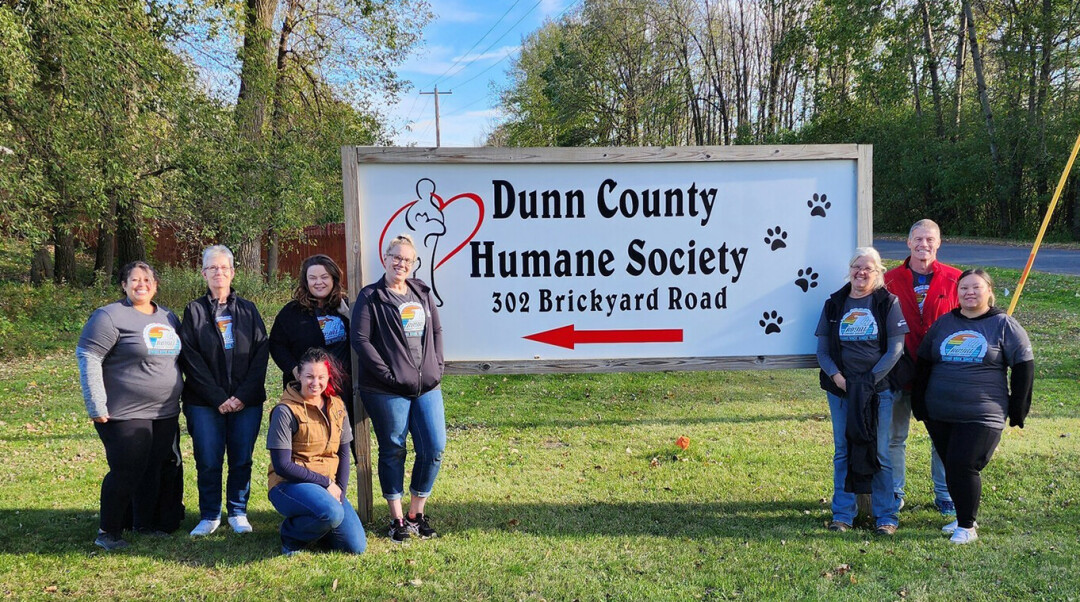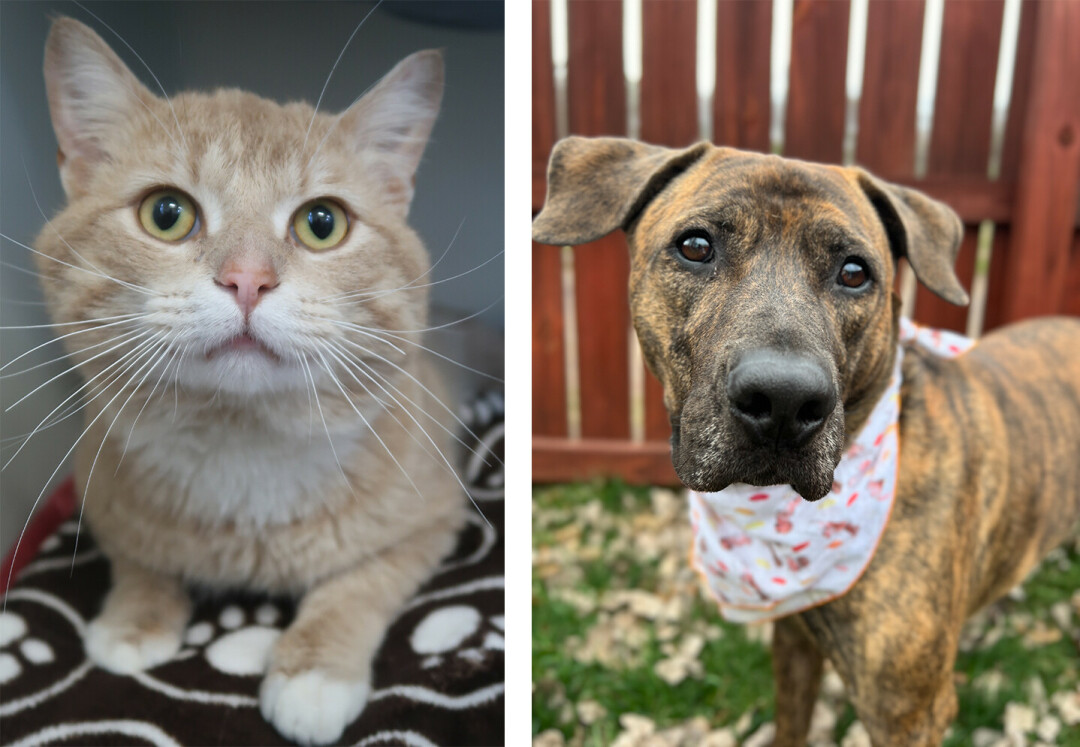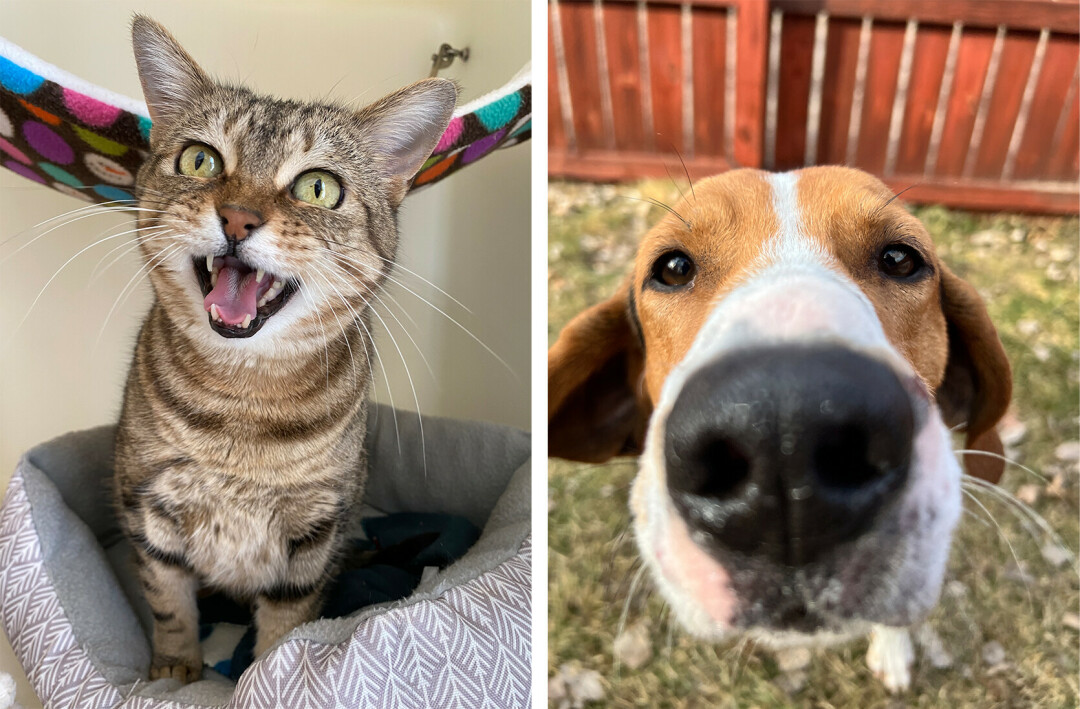How Compassion Builds Community: Learning About the Dunn County Humane Society
pet adoption services are not the only way this humane society supports its community

From Love, a cat brought in on Valentine’s Day, to Saylor the cat, who loves a good nap, and the little dog named Wall-E, the Dunn County Humane Society is a perfect example of displaying love and actively improving the lives of animals.
Harvey Weidman is the director and shelter manager of the Dunn County Humane Society (DCHS), a nonprofit community resource that opened in 1993. “We are staffed 365 days a year. All that work here (is) for the animals,” Weidman said. “We know that they don’t choose to be here.”
As they explained, the DCHS’s overall mission is to, “Improve the lives of companion pets and secure permanent, loving homes for those in their care.”
Programs and Resources
DCHS offers a variety of outreach resources to the community, such as the pet pantry located outside of their building for owners needing supplies for their animals, including pet food, beds, and toys.
With the help of local veterinarians, DCHS also has a program called Trap, Neuter, and Return. The program helps with the overpopulation of cats specifically in Menomonie. Stray cats are brought into the humane society, where they are vaccinated, neutered, and examined to ensure they are healthy before being released back where they were found.
Twice a year the DCHS hosts low-cost microchipping events. People can bring their pets to a local location, where the pricing is around $10-15. Microchips are not the same as a GPS device, and can’t be used to track your pet’s location, according to the Humane Society of the United States. They are simply a unique identifier.
DCHS is in constant contact with local authorities within Menomonie, the county, and the state, when it comes to cases of animal abuse and neglect. Within the shelter, there is a dedicated spot for sheriffs and deputies to drop animals off while the humane society is closed, for their safety.

Adoption
The Humane Society has a thorough adoption process to ensure the animals are going to safe and loving homes. After someone fills out an application on the DCHS website, adoption counselors complete home checks. There’s also a background check, and then a scheduled appointment for a potential “star-crossed lover moment,” as Weidman described. If all runs smoothly, it’s about a week-long process.
Staff and Volunteers
The DCHS currently has two full-time staff and 12 part-time employees. In total, they have over 530 volunteers, many of them UW-Stout students. A lot of volunteers come and socialize with the animals, often hanging out with them in their playrooms or going on walks on nearby trails. They also need volunteers to answer phone calls, work on their newsletter, and respond to emails. Many volunteers donate items like dog toys or crochet items like cat blankets.
To become a volunteer, you can contact DCHS or fill out an application on their website. Then, applicants complete a background check and attend the volunteer orientation classes.

Providing Support
The humane society collects aluminum cans and recycles them to make money while being environmentally friendly. Community members can bring cans and drop them off in their bin outside.
DCHS also hosts their annual Community Rummage and Bake Sale event in late spring at the Fanetti Community Center Dunn County Ice Arena. All money made from purchases at the event goes to the Dunn County Humane Society.
“Right now, it’s a hard time for pet owners, and it can be a big responsibility to add someone to your family, but there are always resources to help. You just have to look for them,” Weidman said.
Find additional information on the Dunn County Humane Society online.






















